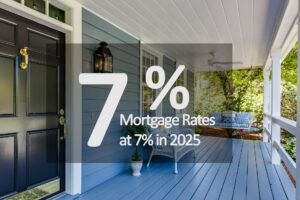Buying your first home is a major life milestone — and one of the biggest financial decisions you’ll ever make. But navigating the mortgage process can feel overwhelming if you don’t know the basics.
In this guide, we’ll break down how home loans work, what types of mortgages are available, and how to prepare for buying your first home — even if you’re still building your credit or working with a tight budget.
What Is a Mortgage?
A mortgage is a loan you take out to buy a home. You repay it in monthly installments over time — typically 15 to 30 years — with interest. Until the loan is paid off, the lender technically owns the property.
Types of Home Loans
1. Conventional Loan
- Not backed by the government
- Requires decent credit (usually 620+), low debt-to-income ratio
- Often requires a 5–20% down payment
2. FHA Loan
- Backed by the Federal Housing Administration
- Designed for first-time or lower-credit borrowers
- Down payments as low as 3.5%
- More lenient credit requirements (as low as 580)
3. VA Loan
- For eligible veterans and active-duty service members
- No down payment required
- No private mortgage insurance (PMI)
4. USDA Loan
- For low-to-moderate income buyers in rural areas
- No down payment required
- Must meet income and location eligibility
What Lenders Look For
To qualify for a mortgage, lenders will check:
- Credit score: Higher scores get better rates
- Income: Steady, verifiable income is a must
- Debt-to-income (DTI) ratio: Ideally under 43%
- Down payment: More down = lower monthly payments
- Employment history: Typically at least 2 years of steady work
Upfront Costs to Expect
Home buying comes with more than just the purchase price. Budget for:
- Down payment (3–20% of home price)
- Closing costs (2–5% of home price)
- Home inspection and appraisal fees
- Moving expenses and initial maintenance or upgrades
How to Prepare Financially
- Check your credit report and fix any errors
- Save for a down payment and closing costs
- Avoid new debt or large purchases before applying
- Get pre-approved to know what you can afford
- Use a mortgage calculator to estimate monthly payments
Renting vs. Buying: Is It Time?
Buying a home makes sense when:
- You plan to stay in one place for 5+ years
- You’re financially stable with emergency savings
- You’re ready for long-term responsibilities (repairs, taxes, insurance)
Still not sure? Renting may give you more flexibility while you build your credit and savings.
Final Thought
Homeownership is possible — even for first-time buyers on a budget. Understanding your loan options, improving your credit, and preparing ahead of time can make the process smoother and more affordable.
With the right knowledge and a little patience, you can turn the dream of owning a home into a smart financial reality.




